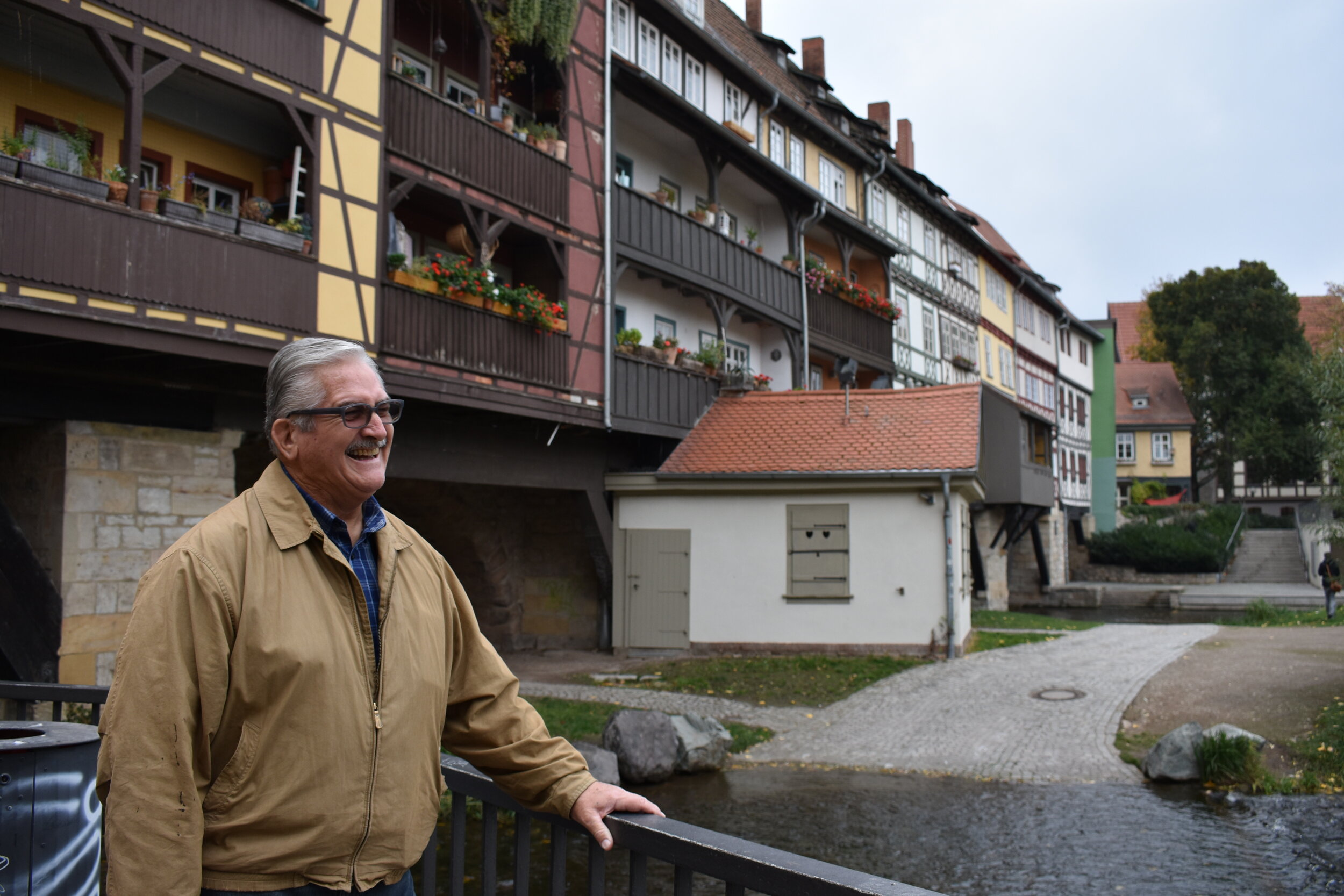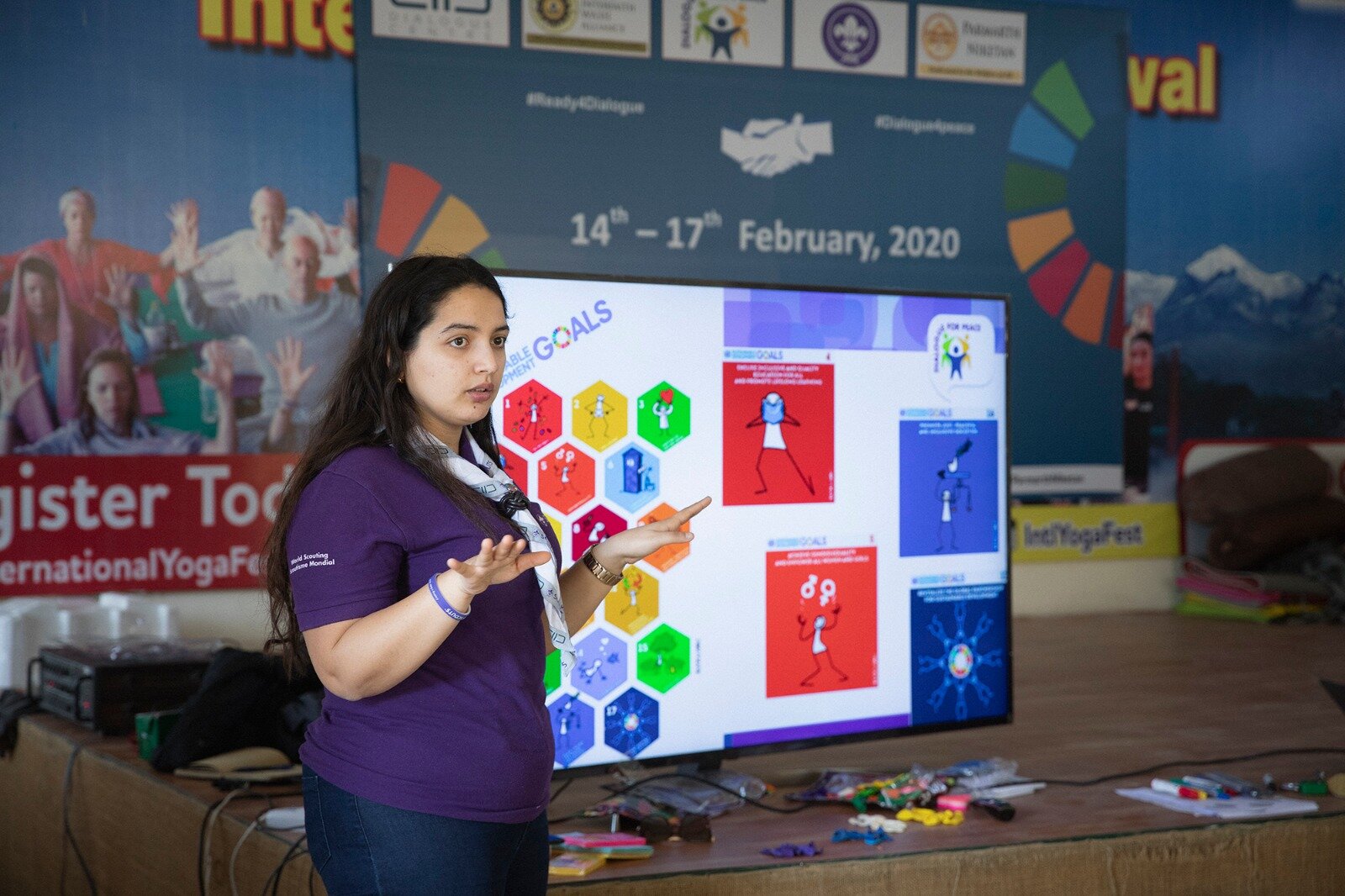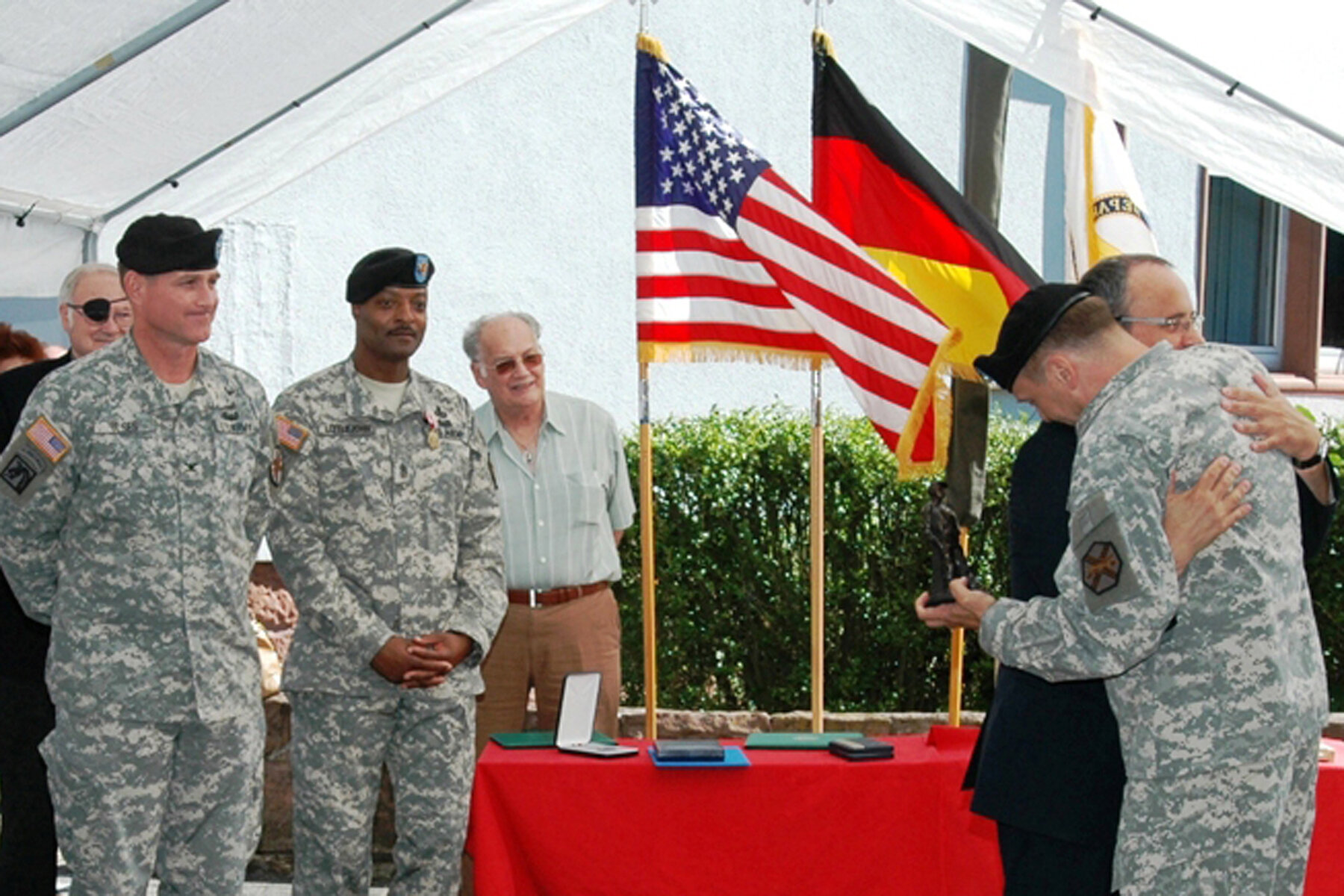At the 10th World Assembly of Religions for Peace (RfP) in Lindau, Germany, Rabbi Elías Szczytnicki urgently made his way to the front of the crowd after a draft of the assembly declaration was read aloud.
Addressing a host of issues, ranging from violent conflicts to education, extreme poverty to protecting sacred sites, the declaration was deficient in one detail, argued Szczytnicki. While it included a section on “Sustainable and Integral Human Development and Protecting the Earth,” the declaration did not go far enough, in his opinion.
“The environment has to be the number one priority. It’s not enough to make it the last paragraph, it has to be the first,” said Szczytnicki, Regional Secretary General for Religions for Peace in Latin America and the Caribbean.
“After all,” Szczytnicki said, “if the climate crisis persists at its present rate, we will have no earth to protect, no place upon which we will build our synagogues, churches, or mosques. No shared land to make peace over, no sanctuary at all.”
Szczytnicki delivered the same message to those deliberating over the most pressing issues of our time as part of the regional consultations leading up to the G20 Interfaith Forum, to be streamed from Saudi Arabia on 13-17 October.
To Szczytnicki’s delight, one of the summits’ principal themes is “protecting the planet.”
Delegates will discuss and make policy recommendations concerning a range of issues, including ecology, with an emphasis on deforestation and the protection of rainforests, access to clean water, commitment to reducing the use of plastics, and the commitment of faith networks to disaster-risk reduction. These reflect several of the United Nation’s (UN) Sustainable Development Goals (SDGs) related to the environment.
Above all, Szczytnicki and others involved in the consultations process leading up to the summit hope to see one concrete outcome: practical partnerships that address climate change and its consequences.
Dr. Lara Wakim, Dean of The School of Agriculture, Holy Spirit University of Kaslik, Lebanon, emphasised the need for partnerships to achieve any practical results in protecting the planet.
Alongside providing scientific knowledge to the Interfaith Forum process, Wakim also sees her role as one of inspiring and empowering faith-based organizations (FBOs) and their leaders to advocate on behalf of the environment. “Spiritual leaders at all levels are critical to the success of global solidarity for an ethical, moral and spiritual commitment to protect the environment and God’s creation,” she said.
In particular, Wakim advised FBOs to consider taking concrete steps by changing attitudes in their own communities, supporting the right to a clean environment, or “greening” their investments and assets to support the implementation of the SDGs.
“Almost all religions agree that creation is an act of God and that nature is an act of divinity and should be treated as such,” she said, “hence, FBO’s core values are largely in line with the 2030 Agenda.”
To make their contributions concrete, however, Wakim said partnerships beyond faith groups are necessary. Besides mobilising religious leaders, Wakim also works to establish working relationships between scientific research institutions, non-profits, public institutions, and the private sector.
“I strongly believe that the SDGs can only be achieved if the widest range of partnerships and collaborations are encouraged and facilitated across all sectors and all levels of society,” she said.
A prime example of the possibility — and challenges — of such partnerships, is the work of Roland Moore. Moore is Senior Director of Sustainability at Burson, Cohn, and Wolfe, an international communications firm. Before, he worked on environmental policy issues in the United Kingdom (UK) Civil Service for fifteen years.
In the lead up to the G20 Interfaith Forum, Moore was asked to bring his breadth of experience and expertise into preparatory conversations in the ad hoc working group on the environment.
On the one hand, to work with what he called a “groundbreaking community of people seeking to establish concrete ideas on religion and the environment” was “very appealing,” said Moore.
As an Anglican, Moore long hoped for religious leaders to lead the way when it comes to sustainability. Pointing to climate change heroes like Greta Thunberg, he asked “we are seeing leaders emerge from all walks of life — business, civil society — why shouldn’t we see leaders in the religious community?”
“I think the interfaith voice in the debate about climate change is critical,” said Moore, “that was my inspiration to get involved.”
On the other hand, Moore found the process to be more arduous than expected. Trying to rally disparate voices from across the religious spectrum proved “a bridge too far” he said. Sometimes, it was difficult to find consensus.
An even more pressing, and ever-present, problem, was getting government representatives to truly listen to religious voices, said Moore.
“I thought religious actors were pretty much plugged into the process,” he said. The reality, he found, was that while not necessarily “window dressing,” FBOs were “being treated a bit like an afterthought,” he said.
Representing billions of people across the world, Moore feels FBOs’ voices should be better integrated in policy discussions. “In these policy recommendations we are going to write some words, and those words are going to matter,” he said. “It would be good to pay attention to faith in a more systematic way if we want them to be effective.”
Partnerships between FBOs, governments, and the private sector only work when all parties are treated like partners, he explained. Or, as he put it, when each constituency is “baked into the cake.”
Szczytnicki, who recently finished being part of the G20 Interfaith Forum’s Regional Consultation for Latin America, agreed that it can be a challenge for religious voices to be heard “in a world that is becoming more secular every day.”
But being on the margins, he argued, can also remind FBOs of their core purpose — leading the way as advocates for those most adversely impacted by the effects of climate change.
In a UN working paper from 2017, S. Nazrul Islam and John Winkel found that there is a “vicious cycle” between climate change and existing inequalities. They wrote, “initial inequality causes the disadvantaged groups to suffer disproportionately from the adverse effects of climate change, resulting in greater subsequent inequality.”
In places like Peru, Brazil, Colombia, and other countries connected through the Amazon rainforest, Szczytnicki is particularly concerned with indigenous peoples and the rural poor. For him, acting as an advocate for such communities in the realm of climate change is a reflection of a common religious refrain — to defend, protect, and advocate on behalf of the most vulnerable.
Particularly when it comes to deforestation, Szczytnicki said the “purpose and voice of religious leaders is to work in alliance with indigenous peoples to monitor, follow-up, help implement, review objectives, etc.”
For Szczytnicki, this also means not separating climate change from other pertinent issues effecting the global community. He said, “it is very important for religious leaders to tell our governments that economic policy, social policy, environmental policy, the three of them have to go hand-in-hand and cannot be separated.
“Development as a three-dimensional concept,” he said.
Coordinated partnerships — between disadvantaged groups and religious actors, religious actors and government institutions, the private sector, and non-governmental organizations — are essential, said Szczytnicki.
“Everyone understands the planet and human destiny according to their perspective,” he said, “but the world is something that transcends the life of each one of us —it’s a common destiny that accompanies all human life.”
Echoing his words at the RfP World Assembly, Szczytnicki said while he is strongly committed to meeting the SDGs, the environment has to be the number one priority.
“There is no other place right now where we have to live together,” he said, “so we have to figure out how to solve this together or none of us will have a habitat to live, worship, or pray in.”
*THIS STORY ORIGINALLY APPEARED ON KAICIID.ORG




























